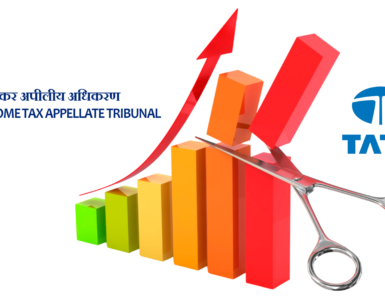Britannia a leading food company in India, the most trusted food brand and manufacturer of numerous biscuits, a public limited company having its equity shares listed on BSE Limited and National Stock Exchange of India Limited.
The Board of Directors of the company on 5th October 2020 has approved the Scheme of Arrangement between members and the company for issuance of debentures by way of bonus and declaration of dividend. After the approval of the scheme, the shareholders will receive 1 fully paid-up debentures of the face value of INR 29/- by way of bonus and dividend of INR 12.50/- per fully paid-up equity share.
Though HUL was the first to come out with similar scheme as early as 2001, Britannia is issuing bonus debentures third time. Salient features of the Earlier two schemes i.e., one approved on February 11, 2010 and the second on August 5, 2019 along with current scheme are:
Table 1: Issuance of Bonus Debentures Comparison.
| Particulars | Scheme approved in 2010 | Scheme approved in 2019 | Current Scheme of 2020 |
| Applicable Section | Sec. 391 of Companies Act, 1956 | Sec. 230 to 232 of Companies Act, 2013 | Sec. 230 to 232 of Companies Act, 2013 |
| Appointed date | Not mentioned | Specific date has been mentioned i.e., Appointed Date means opening of business hours on April 1, 2018 | Appointed Date means Effective Date. |
| Effective Date | Means the Date on which certified copy of the order of the high court at Kolkata (Calcutta) approving the scheme is filed with RoC, West Bengal | Effective Date means the date on which the Debentures are allotted to the members of the Company as on the Record Date. | “Effective Date” means the day on which last of the conditions specified in Clause 11 (Conditions Precedent) of this Scheme are complied with or otherwise duly waived. |
| Record Date | Date fixed by the BoD after Effective Date by reference to which eligibility of members for issue & allotment of debentures will be decided by the Co. | Means the date to be fixed by the Board of Directors of the Company upon sanction of the scheme. | Means such date as may be fixed by the Board of Directors of the Company after approval of the Scheme. |
| Issue of Debentures as bonus | Secured fully paid non-convertible bonus debentures of Rs. 170 each | Secured, non-convertible, redeemable, fully paid-up debentures of face value of INR 30/- | Unsecured, Non-Convertible, Redeemable, fully paid-up debentures of face value of INR 29/- |
| Coupon Rate | 8.25% per annum | 8% per annum | Shall be determined by Board of Directors after approval of scheme before allotment |
| Security | Secured by way of first mortgage created on identified immovable property and first charge on Company’s movable assets restricted to inventories and plant & machinery | Secured by first charge or charge paripassu with any first charge on moveable or immovable assets of the Company. | No-Security, as Debentures are unsecured in nature |
| Utilization of amount for payment of Debentures | Out of General reserve | By utilization of Accumulated Profits | Will be paid by utilization of General reserve |
| Declaration of dividend | NA | NA | A Dividend of INR 12.50/- per fully paid-up equity shares by utilization of Accumulated Profits. |
| Amendment in AoA | NA | Inserted Article 136A | NA |
The Scheme
Appointed Date:
After MCA Circular dated August 21, 2019, it is not mandatory to provide any specific calendar date in a Scheme of Arrangement as Appointed Date. Here in the current Scheme of Arrangement, there is no undertaking which is getting transferred but for determining Accumulated Profits for the purpose of issuing debentures and declaration of dividend the Appointed Date needs to be fixed.
Secured / Unsecured Debentures
In an earlier approved scheme, BIL has issued 8.25% & 8% Secured Debentures, while through the current scheme BIL wants to issue Unsecured Debentures.
Rule 18 of Companies (Shares Capital and Debentures) Rules, 2014, provides for certain conditions to be complied for issue of Secured Debentures. Though there are very less compliance for issue of Unsecured Debentures, the Company is following near about all the compliances of Secured Debentures viz Appointment of Debenture Trustee, Debenture Trust Deed etc.
Further while issuing unsecured debentures, one needs to comply with provisions relating to acceptance of fixed deposits. However, according to rule 21(1) (c) of the companies (acceptance of deposits) Rules, 2014, clause (x), the amount raised as unsecured debentures are now exempt. so, considering the said provisions, the current scheme provides for unsecured debentures
Coupon Rate:
In a scheme of 2009 and 2019 a fixed rate of interest on bonus debentures viz 8.25 % and 8% per annum respectively were mentioned while in a current scheme there is no specific interest rate, discretion has been given to the Board of Directors to fix the rate of Interest post-approval of the scheme.
Though section 71 deals with debentures, it has failed to mention when the rate of interest is to be fixed and whether same can floating or not. The scheme provides for fixation of interest rate after approval of the Scheme and before allotment by the Board of Directors.
Issue of Debentures
Through the Scheme of 2019, the Company has issued Secured debentures by utilizing accumulated profits (i.e., P&L Account balance part of Reserve and Surplus) and currently, BIL would like to issue unsecured debentures by utilizing Accumulated profits which also includes balance in General Reserve along with retained earnings.
As per section 2 (43) free reserve can be utilized for the distribution of dividends. Unlike Section 205 of Companies Act, 1956, section 123 of the Companies Act, 2013 does not require mandatory transfer of certain amount of profit to General reserve prior to the declaration of dividend. So General reserve will be considered dead for declaration of dividend. So, by including general reserve as part of the scheme, the Company is effectively using balance in General reserve to distribute funds to the shareholder by way of Debenture & Dividend. Further, inclusion of dividend as part of scheme which was not there in earlier schemes could also be for utilization of General Reserve for payment of dividend which is not permissible under the provisions of Section 123 of the Companies Act, 2013 except under extraordinary circumstances and as provided in the Companies (Declaration and Payment of Dividend) Rules, 2014.
Why Dividend through Scheme?
Section 123 of the Companies Act, 2013 dealt with declaration of dividend and provided for some restrictions or conditions to be fulfilled before declaration. The question is when there are specific provisions, whether the company can declare dividends beyond specified in Sec 123 by using powers and provisions of Sec 230 to Sec 232 for arrangements with shareholders.
As per Section 123 (1) (a) a company may declare or pay dividend for any financial year:
- out of the profits of the company for that year arrived at after providing for depreciation in accordance with the provisions of sub-section (2), or
- out of the profits of the company for any previous financial year or years arrived at after providing for depreciation in accordance with the provisions of that sub-section and remaining undistributed, or
- out of both
As per Section 123 (3) Interim Dividend may be declared by the Board of Directors
- out of the surplus in the profit and loss account or
- out of profits of the financial year for which such interim dividend is sought to be declared or
- out of profits generated in the financial year till the quarter preceding the date of declaration of the interim dividend,
Considering the restrictions for declaration of dividend, the Board of Directors can neither pay interim dividend nor final dividend out of the General Reserves under extraordinary circumstances and compliance with relevant rules. The Scheme has provided the definition of accumulated profit which also includes General Reserve. Dividend of INR 12.50 will be declared through Accumulated profits which also means through general Reserve. Balance of General Reserve as on 31st March 2020 was INR 893.74. Crores. Thus, debentures amounting to INR 698crs will be paid through the balance amount lying in General reserve & remaining balance of general Reserve amounting to INR 195 Crores will be utilized for distribution of the dividend which is not permitted as per Section 123 hence clause 4.4 of the scheme talks about non-applicability of provisions of Companies Act, 2013. Thus, through this arrangement the company is likely to exhaust General Reserves and payment proposed is neither interim dividend nor final dividend but only arrangements under Sec 230-232 of the Act.
Can Companies take benefits of section 230-232 (“arrangement”) to override applicable provisions of the Companies Act in order to go beyond limit prescribed under the section?
Sec 230 (1) which defines term “arrangements” seems to have wider import and cover all or any type of arrangements with shareholders including payment out of reserves. and whenever the law wanted to provide exclusion and follow specific section say buyback of shares than by Sec 230(10) it provides that any buyback needs to comply Sec 68. The Tribunal has widest discretion to approve any sort of arrangement between the Company and its shareholders, if it does not have any negative impact on rights of creditors or other stakeholders.
Arrangement between Company & its members
There are provisions in the Companies Act, 2013 for every corporate transaction, actions, in some cases approval of the board is required while in some cases approval of shareholders will require to carry on such transactions, but some of the businesses wherein the Act is silent.
In absence of specific provisions and considering the issue of bonus debentures as an arrangement between the Company and its members, an application needs to be made to NCLT (National Company Law Tribunal) under section 230 to 232 (Ref: Scheme of Arrangement of Britannia 2019).
Record Date and Effective Date
There is no specific provision in Companies Act, rules or regulations which talks about Record Date, it is at the discretion of the Board of Directors of the Company to fix the record date after approval to the Scheme from Tribunal. As per Section 232 (6) every Scheme should clearly indicate the date from which Scheme can be effective. As per Rule 19 of Securities Contracts (Regulation) Rules, 1957 read with circular no. CFD/DIL3/CIR/2017/21 dated March 10, 2017 amended via circular CFD/DIL3/CIR/2018/2 dated January 03, 2018 Para (III)(A)(5) of Annexure I of said circular states that
“listing of specified securities to be completed and trading in securities commences within sixty days of receipt of the order of the Hon’ble High Court/NCLT.”
In a Scheme of Arrangement of BIL, Record Date is to be fixed by Board of Directors after approval of the Scheme, however, in a clause 4.2 it has been mentioned that the date of declaration for purpose of allotment of debentures and payment of dividend shall be effective date, further as per clause 6.1the debentures and dividend need to be issued and paid within 30 days of record date.
Seeing the situation, the Board of Directors need to expedite the proceeding to fix the Record Date and allot the debentures and pay the dividend within specified time after the effective date i.e., after the approval of scheme by the Tribunal but before filing of the order with Registrar of Companies
Increase in borrowing limits
As Company is issuing 1 bonus debenture with face value of Rs. 29/-to the shareholders, the total amount of borrowing will be:
Table 2: Borrowing Limits for BIL as on 30th March 2020 (All Figs in ₹ Crores)
| Particulars | Amount in Crores |
| Amount of debentures | 698.10 |
| Long-term Existing Borrowing | 1200.58 |
| Total amount of borrowing post allotment of debentures | 1898.68 |
Clause 13.5 of the scheme it has been mentioned that approval of the members to the scheme will be considered deemed approval to the increase in borrowing limit from Rs. 2000 Cr to Rs. 5000 Cr which is more than NetWorth of BIL. The point to be noted that for approval of the scheme requirement of resolution is majority of persons representing three-fourths in value of the creditors, or class of creditors or members or class of members voting in person or by proxy or by postal ballot, agree to any compromise or arrangement. {Sec. 230 (6)}.
The resolution for increase in borrowing limits through the scheme will now be passed with stringent requirements of majorities in numbers and 75% of the values of the members. The matter of an increase in borrowing limits will get rejected if shareholders do not approve the Scheme.
One needs to understand that, on the one hand, Company is giving bonus debentures and declaring the highest ever dividend per share out of accumulated profits and contrary increasing borrowing limits.
Bonus Shares vs Bonus Debentures vs Dividend
The issue of bonus shares does not directly affect net-worth of the company while the issue of bonus debentures will not only reduce net worth but also increases debt., which would have double y impact on the debt-equity ratio. Dividend is a distribution of a company’s earnings to its shareholders and it reduces net worth to that extent. Bonus shares has no impact on cash flow of the company while share dividend have immediate impact on cash flow as against Bonus debentures results in cash outflow in terms of redemption of debentures and payment of interest though delayed based on terms of the debentures.
The provisions Section 63 of the Companies Act, 2013 deals with for issue of bonus shares, the provisions of Section 123 deals with declaration and payment of dividend while provisions for issue of bonus debentures are nowhere defined in the Companies Act, hence companies go through scheme under Sec 230 to Sec 232.
Britannia is issuing bonus debentures third time first in the year 2009 then in previous year i.e., 2019 and now the current scheme. The bonus debentures issued in last year through NCLT order on 5th August 2019, has subsequently listed on Stock Exchanges. The due date for redemption of said debentures is 28th August 2022.
Impact on Shareholders
The shareholders are not getting direct cash benefits by issue of bonus debentures. The shareholders can get interest payment and payment on annual redemption of debentures, further once listed the shareholder having an option to sell their debentures in secondary market and encash debentures. So, stakeholders receive handsome monetary benefit without any tax liability, but they are liable for tax on receipt of annual interest and gain on sell of debentures. From April 1, 2020 the tax liability of Dividend Distribution tax is shifted from donor to receiver.
This Scheme if sanctioned will result in outlet of INR 1000 Crores (though amount of debentures is not immediate output). Interestingly as on 30th September 2020 the cash and cash equivalent in the Standalone books are showing circa INR 410 Crore (including current investment of INR 373 Crores). Though issue of Bonus debentures is beneficial for the company as well as shareholders, it is not much popular. Both Companies Act 1956 and 2013 failed to recognize and provide the provisions for such innovative technique which is in the best interest of corporates as well as members, after all who does not like Bonus.
Conclusion
The company law explicitly covers various aspects of conversion of debt into equity including hybrid securities and convertible debentures. It also covers and prescribed procedures for return of excess capital to the shareholders, but it is silent on the conversion of net worth and/or equity into debt, though in some way Income Tax Act recognizes the possibility by way of various sub sections viz Sec. 2 (22) of the Income tax Act,1961
The reason for non-specific provisions in the act could be that it may not be a clever idea to provide for such conversion and even to pay shareholders out of future cash flow.
One of the rationale mentioned in the scheme about high cash richness of the Company is true or not? Seems like it is a dividend through borrowings. One of the reasons for heavy distribution of cash through dividend is cash strangled group companies.





Add comment